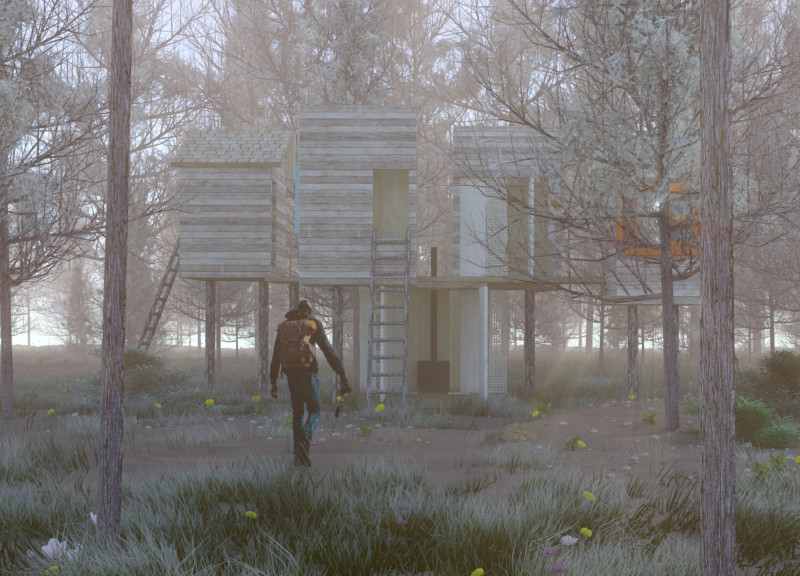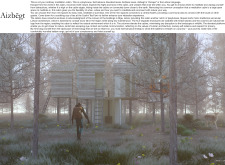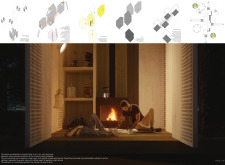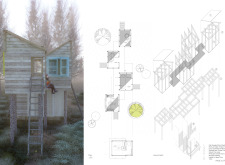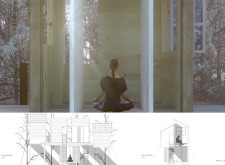5 key facts about this project
The Aizbēgt project offers a fresh take on a meditation cabin, turning it into a playful retreat in the Latvian landscape. This structure allows people to disconnect from daily life and reconnect with nature. By blending practical spaces with a light-hearted design, it provides opportunities for both personal reflection and community engagement.
Design Concept
The design focuses on four separate mini spaces, each catering to different activities like drawing, reading, or meditating. Users can choose how they want to interact with their environment. This approach rejects the need for a large, open space dedicated to meditation, instead highlighting how individualized experiences can take many forms. A central hearth ties the mini spaces together, adding warmth and encouraging social connections among visitors.
Materials and Structure
Drawing inspiration from traditional Latvian architecture, the design incorporates sloped roofs that effectively handle snow while requiring minimal maintenance. The cabins feature timber planks on their exteriors and use natural tree logs as columns for support. These choices help the buildings blend into the surrounding landscape, as the raised columns avoid disrupting the local terrain and wildlife.
Circulation and Engagement
Movement throughout the space is designed to be active and engaging. Ladders and pathways connect the elevated areas, necessitating a physical approach for users to reach different spots. Climbing the rounded ladder rungs creates a sensory experience, reinforcing the idea that users are stepping away from the fast pace of modern life.
Spatial Experience
Colorful windows characterize the cabins, reflecting the lively architectural style of Riga. This feature brings natural light into the interiors and adds personality to the buildings. By allowing individuals to select their paths and spaces, the design nurtures a sense of freedom and personal choice. The project promotes values of self-reliance and privacy that resonate with Latvian culture.
The elevated platforms offer not only a different perspective over the natural surroundings but also a unique opportunity for contemplation, encouraging users to experience their connection with nature in a profound way.


